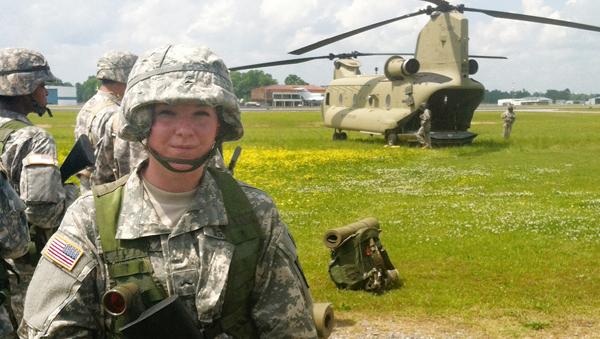On Jan. 24, Defense Secretary Leon Panetta announced a major shift in military policy – women will now be allowed to serve in combat roles. For some University of Alabama students, the change is a welcome one.
“I think it’s good,” said Ann Durand, a sophomore majoring in political science and a cadet in the ROTC. “As long as the women can keep up with the men, they should be treated the same.”
The ban was instated with the 1994 Direct Ground Combat Definition and Assignment Rule, which stated women would be excluded from serving in units whose primary mission was direct ground combat.
The removal of the ban on women in combat roles will also affect the career trajectory of female soldiers.
“What’s important about this is that women can now get promotions faster,” Durand said. “Combat fast-tracks your career.”
Durand’s physical fitness scores qualify her for combat roles, but she was previously barred from those roles because of her gender.
According to the Department of Defense, women make up approximately 15 percent of military personnel.
“The Department’s goal in rescinding the rule is to ensure that the mission is met with the best-qualified and most capable people, regardless of gender,” Panetta said in a news release.
(See also in Opinion: “Of course women should be allowed to serve in combat”)
The lines which separate female soldiers in non-combat roles from men who are in combat roles have become blurred over time.
The Washington Post’s Faces of the Fallen project, which compiles information about soldiers who have died as a result of the wars in Iraq and Afghanistan, found that 146 female service members have died in these wars to date.
According to the Service Women’s Action Network, women have played important roles in combat units during the wars in Iraq and Afghanistan already, through Lioness Teams and Female Engagement Teams.
Lioness Teams accompany Marine combat units in Iraq in order to search Iraqi women for weapons or explosives. This is necessary because of the cultural stigma that comes with being touched by a man for Iraqi women.
Female Engagement Teams are tasked with building relationships with Afghan women.
“The absence of a clear line between enemy and friendly territory produces a situation where both women and men are always exposed to the possibility of combat, necessitating every soldier to be combat-ready,” SWAN said in a statement about women in combat roles.
Durand said she can serve on equal footing with her male counterparts.
“I feel accepted,” she said. “The rucks we carry are the same. My training is the same as the guys’.”
When packed, a ruck carries everything a soldier would need for field training exercises. It can weigh 60 pounds or more.
Ricky Webb, a 2008 graduate of the University and member of the National Guard, agreed.
“Granted, I’m in a non-combat field, but I treat them with the same respect I’d treat any other soldier,” he said. “In training, I’ve seen women that could pass the male scale in physical training. If they can cut it, they can cut it.”
The removal of the combat ban has affected the way Durand thinks about a long-term military career.
“It’s something to consider,” she said. “The removal of the ban opens new things up to me.”
Also in today’s Crimson White:
Downright to play in Green Bar Friday
SportsCenter anchor and UA alum Rece Davis to speak in Ferguson Center Theater









